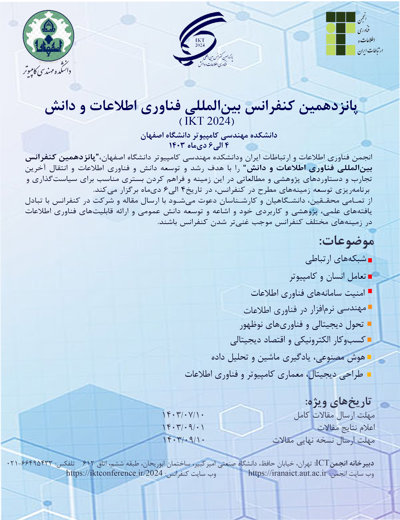0% Complete
Authors :
Keywords :
Abstract :
List of archived papers
Amin Aboutalebi Najafabadi - Seyed Hossein Hosseinian
Abbas Chaman Para - Maryam Nooraei Abadeh - Sondos Bahadori
ریحانه احمدی علیائی - امینه امینی - عباس جلیلوند
Marzieh Sadat Hosseini - Ahmad R. Naghsh-Nilchi - Mehran Safayani - Masoumeh Sadeghi
Rasool TayebMoghadam - Amirhossein Damia - Hadi Bahrampoor - Maryam Zarghani
Golshan Afzali Boroujeni - Heshaam Faili
Mojtaba Noorallahzadeh - Mohammad Mosleh - Ali Shahidikia
زهرا امینی - سید علیرضا هاشمی گلپایگانی - علی میرزائی




